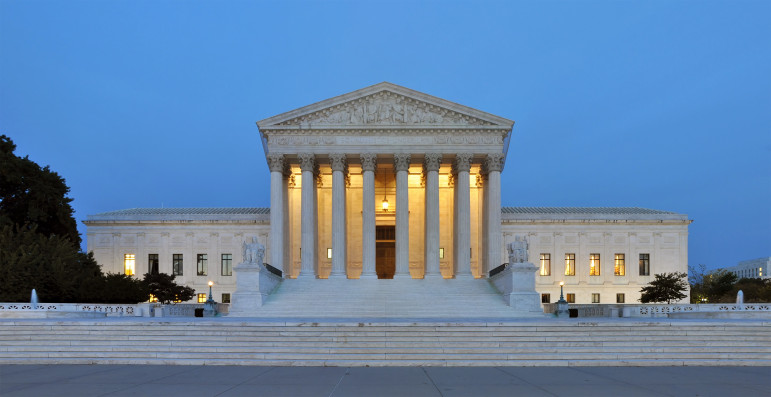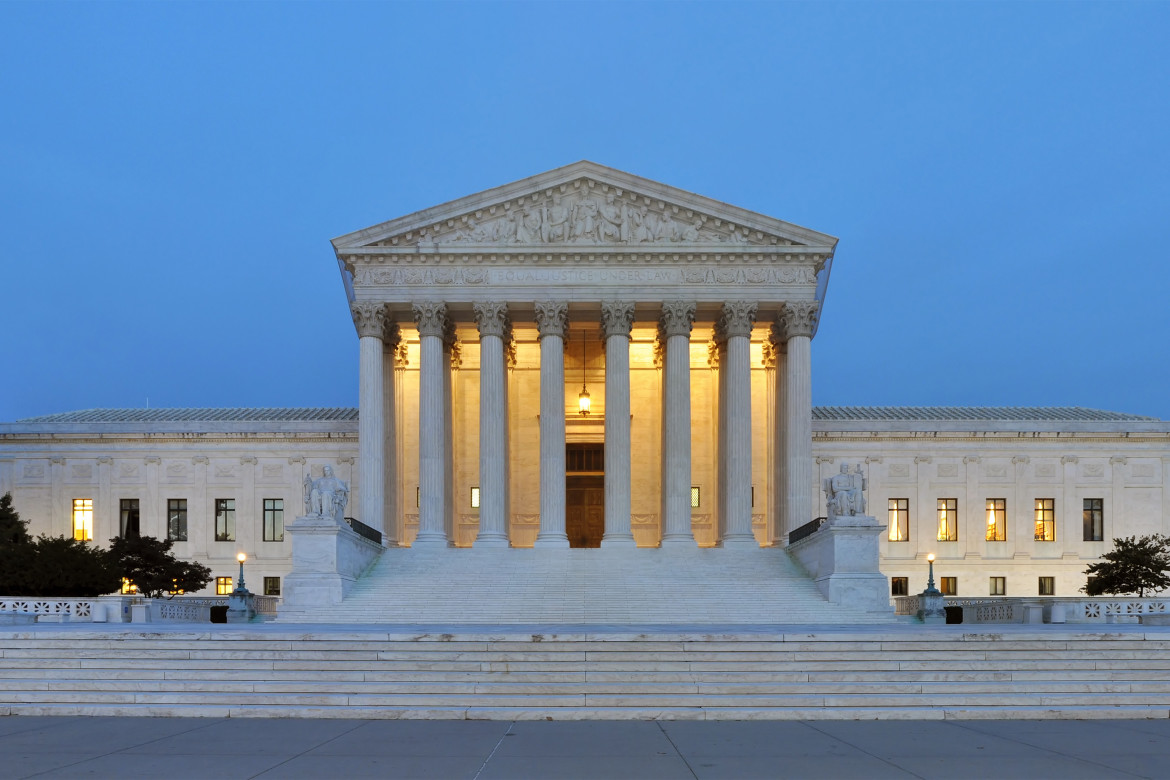
Wikimedia Commons
The U.S. Supreme Court.
WASHINGTON — The U.S. Supreme Court has agreed to hear a case in which it will decide whether to apply retroactively its landmark 2012 Miller v. Alabama ruling, declaring unconstitutional mandatory sentences of juvenile life without parole.
The justices decided to hear the case at a closed-door conference Friday, the high court announced today.
Opponents of mandatory juvenile life without parole welcomed news that the Supreme Court is taking up the retroactivity issue.
“I think it’s a very important step,” said Emily Keller, a staff attorney at the nonprofit, Philadelphia-based Juvenile Law Center. “We’re very hopeful that the Supreme Court is taking this case and will clarify that everyone serving an unconstitutional mandatory life-without-parole sentence for something they committed as a juvenile will have the opportunity to receive a sentence where their age and potential for rehabilitation can be considered.”
The appellant in the case that the Supreme Court agreed to hear, Henry Montgomery, received a sentence of mandatory juvenile life without parole (JLWOP) for murdering a police officer in 1963 less than two weeks after his 17th birthday.
The Montgomery v. Louisiana petition to the U.S. Supreme Court cited a lower federal court ruling and argued that the Miller decision is “a substantive constitutional rule that mandates courts to implement a new procedure in the sentencing of juveniles.” Montgomery is asking to be resentenced.
Nationwide, about 2,100 people are serving mandatory JLWOP sentences for murders committed as juveniles, the Juvenile Law Center says.
“I think it’s crucial that the court addresses the question of the retroactivity of Miller v. Alabama to ensure equal treatment under the Constitution for all individuals who have been sentenced as children to mandatory juvenile life without parole,” said Heather Renwick, litigation counsel for the Washington-based nonprofit Campaign for the Fair Sentencing of Youth.
“It’s an enormously important question in the lives of children who are sentenced to die in prison, and we’re hopeful that the Supreme Court will decide in favor of retroactivity to ensure that all children are given a second chance.”
In Miller, the Supreme Court determined that sentences of mandatory life without parole for those convicted of murder as children violated the Eighth Amendment’s prohibition against “cruel and unusual punishment.”
But the high court has not decided definitively whether to apply Miller retroactively, and lower federal courts and state courts have been divided on whether Miller applies retroactively.
Montgomery v. Louisiana is one of six petitions the Supreme Court received asking it to consider whether Miller v. Alabama should apply to cases decided before the ruling.
The court considered three of the six petitions on Friday.
On Thursday, Florida became the 10th state whose courts have ruled the 5-4 Miller v. Alabama decision should apply retroactively. (The other states are Illinois, Iowa, Massachusetts, Mississippi, Nebraska, New Hampshire, South Carolina, Texas and Wyoming.)
Courts in four states — Louisiana, Michigan, Minnesota and Pennsylvania — have decided Miller does not apply retroactively.
The U.S. Supreme Court had agreed in December to consider retroactivity in another ruling from the Louisiana Supreme Court, Toca v. Louisiana.
In that case, George Toca challenged the mandatory life-without-parole sentence he received for accidentally shooting his best friend when he was 17 in a botched armed robbery in 1984. But Toca was freed in January after nearly 30 years in prison as a result of a deal with prosecutors, thus making his petition to the U.S. Supreme Court moot.
In declaring mandatory JLWOP unconstitutional, the Supreme Court has cited research showing juveniles’ brains are not fully developed, and youths are more susceptible than adults to peer pressure, more impulsive, more likely to take risks and less likely to consider long-term consequences. The court also pointed to research showing juveniles are amenable to rehabilitation.
